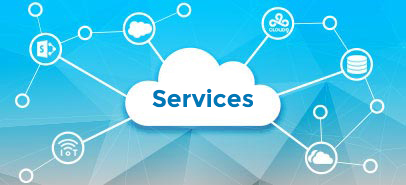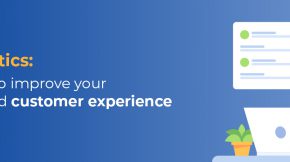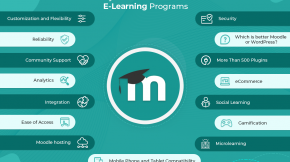Healthcare Analytics and its impact on Hospital Performance
What is Healthcare Analytics
“The Global healthcare analytics market is projected to reach USD $50.5 billion by 2024 from $14.0 billion in 2019” according to a recent report by Markets and Markets. Several factors impact the rise in the global healthcare analytics market. An increase in EHR adoption, substantial improvement in venture capital, a decrease in healthcare spending, and improvements in patient outcomes are some of those factors which have helped to boost the analytics market for the healthcare industry.”
The pace at which healthcare data is increasing daily. The healthcare industry needs better ways to collect, organize, and analyze this data to make informed decisions and improve patient care. Healthcare Analytics is about utilizing business intelligence tools to structure the data, so healthcare professionals can easily understand and act on this information.
How Business Intelligence can be applied in Healthcare
Healthcare providers constantly work on tight budgets. Business intelligence can help them identify areas where they can reduce costs, increase revenue, and improve patient safety and outcomes while still complying with regulations and standards.
Stakeholders can access granular reports that uncover their entire Financial operations. They can get more insights into identifying profitable or underutilized operations.
They can also closely monitor cash flow, annual income, and compliance reporting. BI is powerful and can be applied to several segments within the healthcare industry. Business Intelligence:
- Improves the process of patient care
- Facilitates quality performance and safety analysis
- Develops evidence-based clinical decision-making
- Monitors patient wait times
- Streamlines the claims process
- Optimizes Lab tests prices to make them affordable
- Enhances marketing results
- and a lot more
Major benefits of Business Intelligence in the Healthcare Sector
Business Intelligence is a big contributor to revolutionizing the healthcare industry. There are several benefits of applying BI into healthcare. Let’s find them out here.
-
Faster decision making
The collaboration of Healthcare professionals from different departments is often critical. When they have the tools to work together, they can make quicker decisions that lead to better patient care.
Business intelligence dashboards collect data from various sources like EHR/EMR systems, lab reports, medical device readings, and past medical history. Having all the information on a unified dashboard makes the decision process smoother and more linear, so there are no gaps in the communication, and everyone knows each patient’s treatment plan.
-
Value-added patient care
Patient care and satisfaction are important KPIs for modern healthcare centers. The patients and their family invest their hopes and dreams of better, faster treatment at the hospitals. They want to see their progress and ensure they are taking the right medications to help them regain their health.
Hospital’s success depends on a high degree of patient satisfaction. For stakeholders, BI dashboards and centralized platforms are needed to monitor patient feedback to understand which areas need improvement.
Moreover, with patient data becoming so comprehensive and detailed, physicians also refer to these dashboards to provide individual and accurate patient care and boost patient satisfaction.
-
Cost optimization and control
Hospitals need to keep a close eye on their finances. They need to know which departments or processes offer a strong ROI and which are weak and need attention.
They rely on financial and expense management reports to determine cost-cutting, resource optimization, and waste management.
A healthcare enterprise data warehouse (EDW) organizes a health organization’s clinical, financial, patient satisfaction, and administrative data in one unified view that administrators can use to take a data-driven path of cost management. With all the data available in one place, tasks like expense itemization and billing are free of errors and variables. This makes it easier to calculate the best way to save money and increase revenue.
-
Mitigating risk and aid compliance
Every patient gets their patient history, clinical reports, and hereditary metrics. This data makes it possible for healthcare organizations to reduce risks and possible illnesses.
For example, more healthcare institutions are using predictive analytics to predict potential future medical challenges. This helps them take timely precautionary measures to mitigate the impact.
Key KPIs and dashboards of Healthcare Analytics
As a Healthcare institution leader, it is crucial to understand which hospital KPIs you should track and monitor to get a quick view of your overall hospital health. Tracking your hospital performance not only improves your Patient services but also optimizes your operational costs and processes.
Your overall hospital performance depends on the following factors:
- Hospital KPIs
- Patient satisfaction and experience
- Resource optimization
- Financial budgets and expense
- Operational costs
HEALTHCARE KPIs
- Average Patient Wait Time
- Bed Occupancy Rate
- Average Hospital Stay
- Staff-To-Patient Ratio
FINANCIAL KPIs
- Average Treatment Charge
- Permanent Employee Wages
- Average Insurance Claim Processing Time and Cost
- Claims Denial Rate
Impact of BI on Hospital performance
In addition to the benefits of data analysis for current healthcare industry problems, a Health BI solution presents potential scientific and technological advances in the future. Data analytics can be used to filter massive amounts of data in seconds to find treatment options or solutions to different diseases. This will not only provide accurate solutions based on historical information but may also provide customized solutions to unique concerns for patients.
The potential applications of this analysis are limitless, offering possibilities such as:
- Epidemic prediction
- Disease cures
- Quality of life improvement
- Preventable care
- Early detection
- Risk assessment.
Conclusion On Healthcare Analytics
Despite the immense impact and potential of applying Business intelligence to a healthcare organization, there is still a technology gap in many organizations. Many institutions believe it would be an expensive endeavor and never work on finding cost-efficient BI solutions. Being one of the Top App Development Companies, we have helped several of our clients with our scalable, intuitive and reasonable app development and BI solutions.
We have been working on several BI solutions and integrations. We have integrated many healthcare devices and system integrations like EHRs and EMRs and other hospital systems. Our BI team of experts has experience with several BI tools like Domo, Tableau, Power BI, SSRS, etc. and we can develop quick BI solutions per your specific needs and a reasonable budget.
Connect with us for a free consultation on your BI needs and leverage the power of Data Analytics and BI.












